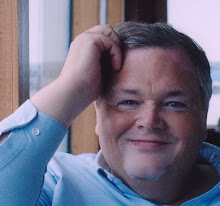I am often not clear enough in my respect for the great effort, diligence, grace, and success involved in developing established knowledge, because I am biased to look for the next thing, the thing they missed, or the exception to their rule.
For example, I am greatly respectful of my MBA and other graduate students for their abilities to use so many powerful tools of insight and analysis, but I am drawn to point out how many of these approaches require forecasts of impossible accuracy and reliability. I love to share books with them that demonstrate that the world is so unpredictable that you cannot possibly make plans today for ten years out. You can only plan to be ready to spot and plan for emerging new realities.
I guess I don't see this as criticizing the experts' hard work but rather as exploring the edges of growth in knowledge. However, I suspect that my colleagues in the study of creativity might be repelled by my conviction that the approach of researching idea generation in individuals
and undifferentiated groups was exhausted 40 years ago. I am intrigued by studying creativity as a process of learning, of shifting one's knowledge in ways that make new possibilities obvious. I am even more interested in the success factors of collaborations of individuals with disjoint perspectives and conflicting values.
I guess I learned to be skeptical of accepted knowledge at an early age from a very creative father. One of my earliest memories was working with my mother on my spelling words as my father returned from work. As I correctly spelled "earn", my father insisted it was spelled "urn". Then we got out the dictionary and there it was, a different word with the same pronunciation.
He had even more fun as the nuns in my Catholic school tried to teach me about the all powerful nature of God when he sent me in with the question: "Can God build a building so big he can't pick it up?"
My life is full of experiences where I discovered opportunity by ignoring or going beyond well established truth. I often explain this with the classic creative idea "Don't raise the bridge, lower the river." If you are told to figure out a way to raise the bridge, lowering the water is a highly unsatisfactory idea. But when you realize the question is wrong, that your goal is to get a gap big enough, because you want to get boats past the bridge, all kinds of new possibilities open up. My favorite is where they sink the bridge under the water to let the boats go over it.
This contra-conformist attitude drives much of my work and fun. When students seeking jobs complain of all the defects in their background, I love to work with them to demonstrate how those features are huge advantages when they look for the right job.
But I also have a belief that our perspective can greatly improve our effectiveness. One way I teach this is by asking people to multiply two numbers written as Roman numerals, such as XLIX times LXIV without converting them to the Arabic equivalent: 49 times 64. The first problem is impossible, the second is easy, many can do it in their heads.
With clients I love to help them find new opportunities for improvement to existing designs by re-examining their intentions and assumptions. I get to see them delighted in applying their considerable expertise in new and exciting ways to get better answers than they got before.
So I am constantly looking for places where the way we describe a problem or hidden assumptions may be hiding easy answers from us. There is often a discovery, and even when it fails, the journey is often a blast.




Chris,
ReplyDeleteIt's about time! I am truly looking forward to reading some of your musings on creativity and innovation. Thank you for sharing your thoughts here. Best to you,
Randy
Chris,
ReplyDeleteGlad to see you'll be sharing some of your insight on innovation, welcome to the blogosphere. Keep those posts coming, please, I've learned something useful already.
Gregg